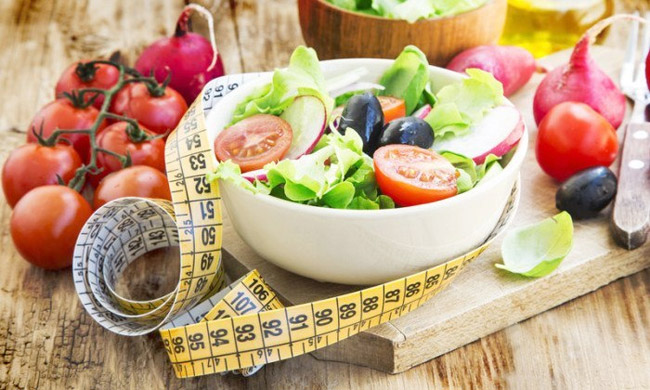
New Cornell Food and Brand Lab research findings have uncovered the lifestyle secrets of the “mindlessly slim.” They are – Eating high-quality foods, Cooking at home, and listening to inner cues in order to stay slim. Over-riding feeling of guilt about overeating, is also significant. Furthermore, mindlessly slim people were more likely to have an enjoyment-based, internally informed approach to food and eating.
- Practice Mindful Eating
Be aware of what you are feeling, both inside and out. It is crucial to be mindful when taking care of yourself. Mindful eating means taking notice of what you are grabbing and gobbling. That might stop you from reaching for the first available “comfort” food and give you time to be in charge of your choices. What can you do to become more mindful? Try meditation, yoga, listening to music or creating a personal ritual such as preparing and drinking tea.
- Eat High Quality Food
Food is your foundation, and to build a solid foundation, you have to eat the best quality food you can. Quality food does not mean buying five organic apples a week and then filling up on frozen pizza and mac and cheese. Quality food is increasing your unprocessed food intake in an affordable way. For example, instead of buying fresh produce, you may choose to buy frozen/canned produce and fish so you can eat more healthy meals in a week. It’s not only more economical, it’s super-healthy! You can take the same amount of money and buy some organic cookies and milk, and then load up on hot dogs and McDonalds. That’s not quality eating. Quality is about mindfully preparing more of your own meals from unprocessed foods. The “extra” money you invest in your food and your health will spill over into all aspects of your life.

- Cook By-yourself
There are a lot of pros and cons to cook at home. Start cooking real, whole foods from scratch and you’ll be amazed to see the pounds drop off. Not only because you’re avoiding chemicals but also because you’re cutting out all that extra fat, sugar and salt. Portion control is as easy as deciding how much food to put on your plate, eliminating the temptation to eat all those fries that came with your restaurant burger. Restaurant food uses a lot of butter and heavy cream that can be high in calories. That makes it easier to stick to a diet plan. Cut down on your packaged, restaurant and take-out meals. Spend some time handling and preparing your own food. - Be Mindful of Scale Reading
Don’t hop on the scale daily, and especially after large meals. You’ll only feel discouraged and disappointed, which can lead to binge eating behaviors. Obsessing about ups and downs on the scale can make or break your mood. According to the National Weight Control registry, 75 percent of people who’ve lost weight and kept it off for at least a year weigh themselves weekly, so do it the same day of the week, in the morning, and jot it down so you know where you stand throughout the month.
- Manage your Emotions
Labeling food as good or bad prevents you from actually enjoying it. Eating disorders tend to make this even worse and feelings of guilt easily result in self-loathing, shame and hopelessness. How to handle emotional eating? Write down what you feel and where you think it comes from. In what parts of your body do you feel it the most? Another exercise that is useful is to write down 3 things you like about yourself. This is a way to distract your mind and by directing it towards something positive it helps you in learning to appreciate yourself. Your emotions and feelings are there to be felt not to be pushed away. Talk to them, welcome them, but choose not to punish their existence.

Tips for a Building a High Quality Diet
- Eat 5-6 servings of fruits and vegetables per day, or approximately 3 cups.
- Eat a variety of colors for a full range of nutrients.Aim to have 50% of your carbohydrates come from whole grains.
- Choose lean protein sources such as skinless chicken breast, fish, extra-lean cuts of pork and beef, and low-fat dairy products.
- Limit added sugar, sweets, and soft drinks; they are low in nutrient density and cause spikes in glucose levels.Have a serving or more of nuts, seeds, or legumes per day.
- Whether eating a full meal or snacking, include all 3 macronutrients: protein, carbohydrates, and a little fat..
Food is there to nourish your body and feed your soul, not for counting calories and compensation.
Referemce:
- https://www.sciencedaily.com/ (The findings of this study were presented at Obesity Week 2015, Los Angeles, CA on November 4th)
Disclaimer
The Content is not intended to be a substitute for professional medical advice, diagnosis, or treatment. Always seek the advice of your physician or other qualified health provider with any questions you may have regarding a medical condition.



